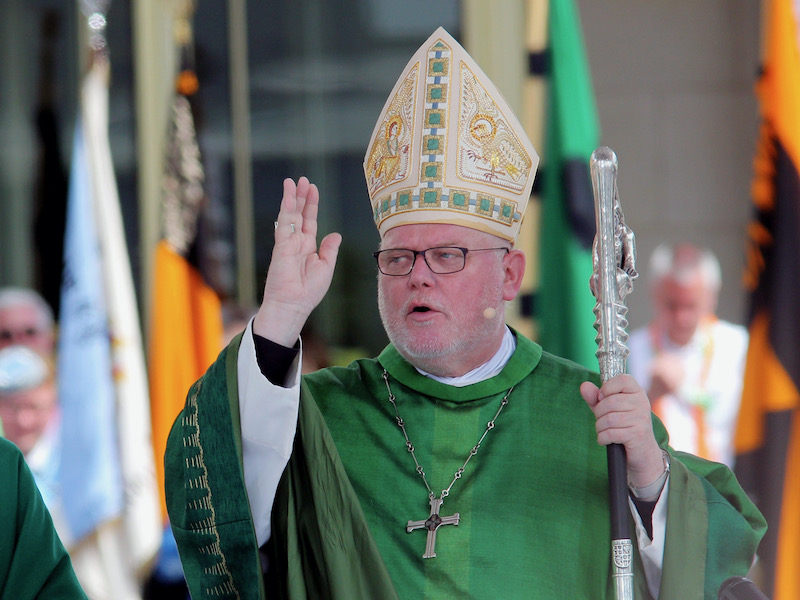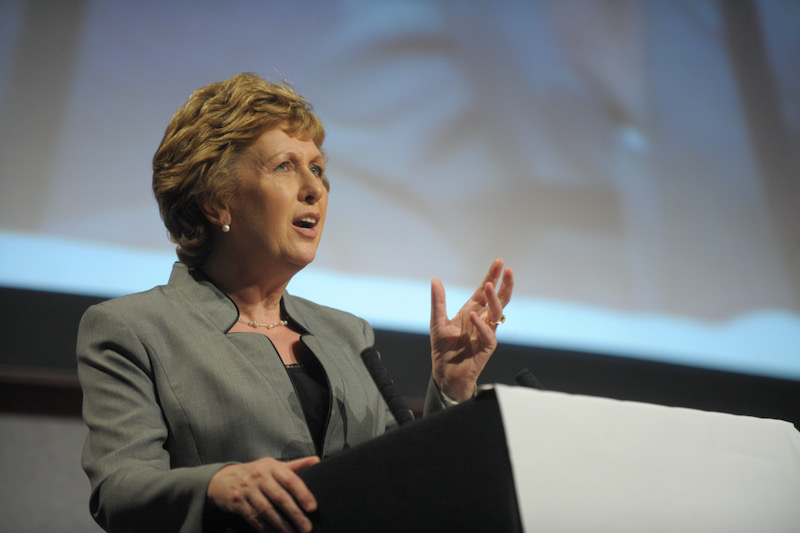The “severe limits” imposed on what can be discussed at a synod should be clarified before the synodal journey starts so that people can decide “if it is worthwhile to join the journey”, former president of Ireland, Mary McAleese, has said.
Delivering this year’s Newman Lecture hosted by St Benet’s Hall, Oxford, the professor of children, law and religion at Glasgow university said a “simple clarifying statement” from the Church’s supreme author of canon law, Pope Francis, would suffice before or as the synod process opens.
“Without it, we will have yet another synod which fails to tackle the underlying problems that need to be confronted,” Professor McAleese said, warning that another exercise in “calculated avoidance” may well prove to be one too many for the “frustrated, learned faithful”.
Professor McAleese’s address was titled “Baptismal obligations? Revisiting the christening contract – a necessary prelude to any synodal journey”. In it she noted that canon law claimed to be entitled to limit and control the rights of church members because of personal promises made at baptism, “when most were babies and incapable of making such promises”.
She added: “With the arrival of Newman’s educated laity, literate in secular and ecclesial matters, it is a claim that is increasingly contested and unless faced up to honestly could make the synodal way just a meandering circular journey back to the same old unstable starting point but with fewer and fewer people bothering to turn up.”
She highlighted Cardinal Mario Grech’s observation that “Pope Francis has inaugurated a new style of synods marked by a real freedom of speech”. The German “binding” synodal journey had involved extensive direct lay participation and voting on matters considered doctrinally contentious which consultation with the laity had highlighted as priorities.
However, it got short shrift from Pope Francis, while Cardinal Marc Ouellet told the German bishops that their plans for the synod were “not ecclesiologically valid”.
Professor McAleese, who has a doctorate in canon law, asked if the silence demanded by obedience to the Magisterium was realistically evidence of harmony.
“If the synodal journey is to have any hope of being a meaningful ‘ecclesial spring’, it needs to start by revisiting that christening contract which most of us slept or cried through,” she said.
“It needs to acknowledge that it can no longer avoid the reality that the baptismal obligations which are set out in canon law and which impose significant limits on our freedom of conscience, opinion, belief, religion and right to change religion have been overtaken by contemporary understanding of our inalienable human rights, as set out in the Universal Declaration of Human Rights.”



 Loading ...
Loading ...